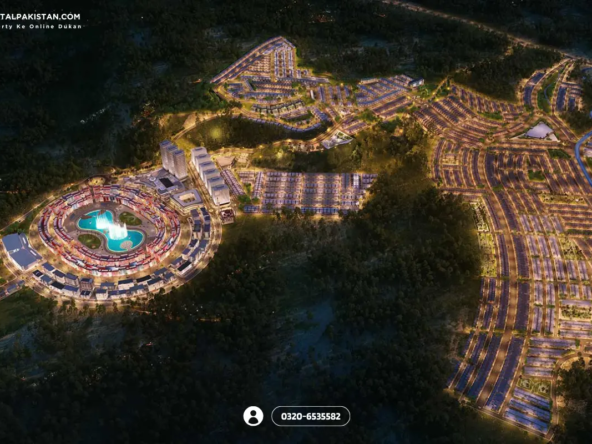The Real Estate Market in Pakistan
The Growth Factors
In terms of economic impact, Pakistan’s real estate industry is crucial. Due to factors such as rapid urbanization, rising salaries, and better infrastructure, Pakistan’s real estate industry has seen radical change in recent years.
Rapid urbanization in Pakistan is one of the main reasons for the industry’s expansion. By 2050, more than half of Pakistan’s population is projected to live in urban areas, up from 38% in 2019. There will be an increase in the need for residential, commercial, and retail real estate as more people settle in urban areas. Real estate prices have been on the rise over the past few years across the board, but especially in the country’s largest cities like Karachi, Lahore, and Islamabad.
Increasing disposable incomes are also contributing to the real estate market expansion in Pakistan. The need for decent apartments and stores is growing as more individuals enter the middle class. Despite the difficulties brought on by the COVID-19 pandemic, Pakistan’s economy has been expanding at a healthy clip, with an expected GDP growth rate of 3.9% in 2021. Consumers’ disposable incomes have expanded with this expansion, fueling demand for housing.
The real estate market in Pakistan is booming, helped in no small part by the country’s rapidly developing infrastructure. The government is building new airports and roadways, and it has also initiated work on the China-Pakistan Economic Corridor (CPEC). Officials hope that completing these projects will decrease travel times between major cities and facilitate the easier transportation of goods across the country. Consequently, the anticipated rise in demand for commercial properties such as warehouses and logistics centers.
Problems in Pakistan’s Property Market
Notwithstanding these positive tendencies, there are still obstacles for the Pakistani real estate market to overcome. The lack of openness in real estate deals is a major obstacle. The widespread use of cash in real estate transactions makes them difficult to monitor. As a result, there are problems like property fraud that can deter international investors from entering the Pakistani market.
The absence of adequate regulatory frameworks is another problem. Several rules have been put in place to regulate the real estate market by the government, but they are rarely strictly enforced. This has resulted in problems, such as unrestricted building, which can endanger the public.
In sum, Pakistan’s real estate market offers excellent potential for both domestic and international investors. We anticipate that the sector will continue to grow in the years ahead due to favorable macroeconomic indicators such as urbanization, income growth, and infrastructural development In order for the market to remain stable and sustainable, however, the government must address issues like transparency and regulatory frameworks.



